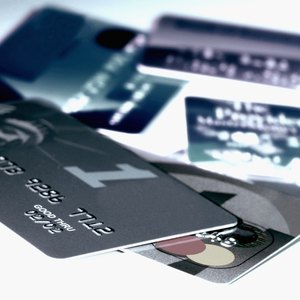
It is natural to want to present yourself in as positive a light as possible on a credit card application, because not only do you want to be approved for the card, but you also want the highest credit limit available to you. It is important to keep in mind, however, that when you provide false information on a credit application you are committing fraud. Depending on the nature of the misinformation, it may also trigger identity theft charges.
Federal Bank Fraud
One of the most common ways lies on credit card applications is overstating of income -- perhaps with the idea that the card issuer will never know. However, most credit issuers are associated with a national bank, and the federal government views this small fib as a false statement intended to influence the particular credit issuer to extend credit, which is punishable under 18 U.S. Code § 1014 by a fine of up to $1 million and a prison sentence of up to 30 years.
Credit CARD Act of 2009
The Credit Card Accountability Responsibility and Disclosure Act of 2009 requires credit issuers to carefully decide whether a particular applicant will be able to pay his credit card bill. Toward that end, many banks and other credit issuers scrutinize applications more carefully than they did prior to the act's passage. For example, they might request proof of stated income.
Identity Theft
According to the U.S. Department of Justice, credit card fraud is one of the most common forms of identity theft. Applying for a credit card in another person's name is not only credit card fraud, but under 18 U.S. Code § 1028 is also considered to be identity theft and is punishable by up to 15 years imprisonment.
A Very Bad Idea
Each state has its own laws meant to prevent credit card fraud and identity theft, and violation of federal laws will more than likely also result in a violation of state laws. When applying for a credit card, think twice before stretching the truth. The penalty for violating either state or federal laws could far outweigh the benefit of obtaining the credit card.
References
- Legal Information Institute: 18 U.S. Code § 1014
- GPO: Credit Card Accountability Responsibility and Disclosure Act of 2009
- The United Stated Department of Justice: Identity Theft and Identity Fraud
- Legal Information Institute: 18 U.S. Code § 1028
- Federal Trade Commission. "Credit Card Accountability Responsibility and Disclosure Act of 2009," Pages 15-16. Accessed Aug. 27, 2020.
- Consumer Financial Protection Bureau. "§ 1026.51 Ability to Pay." Accessed Aug. 27, 2020.
- Consumer Financial Protection Bureau. "How Do I Get a Copy of My Credit Reports?" Accessed Aug. 27, 2020.
Writer Bio
Jason Pollack has been an active member of the Florida bar since 2006, working in appellate, criminal, immigration and family law. He is a graduate of the University of Miami School of Law.

